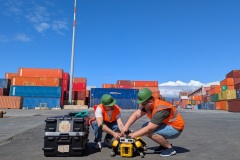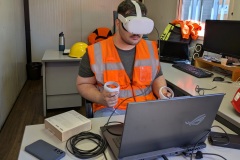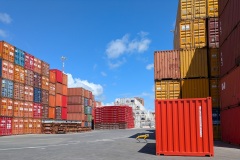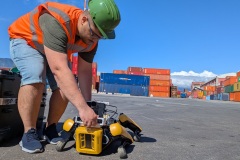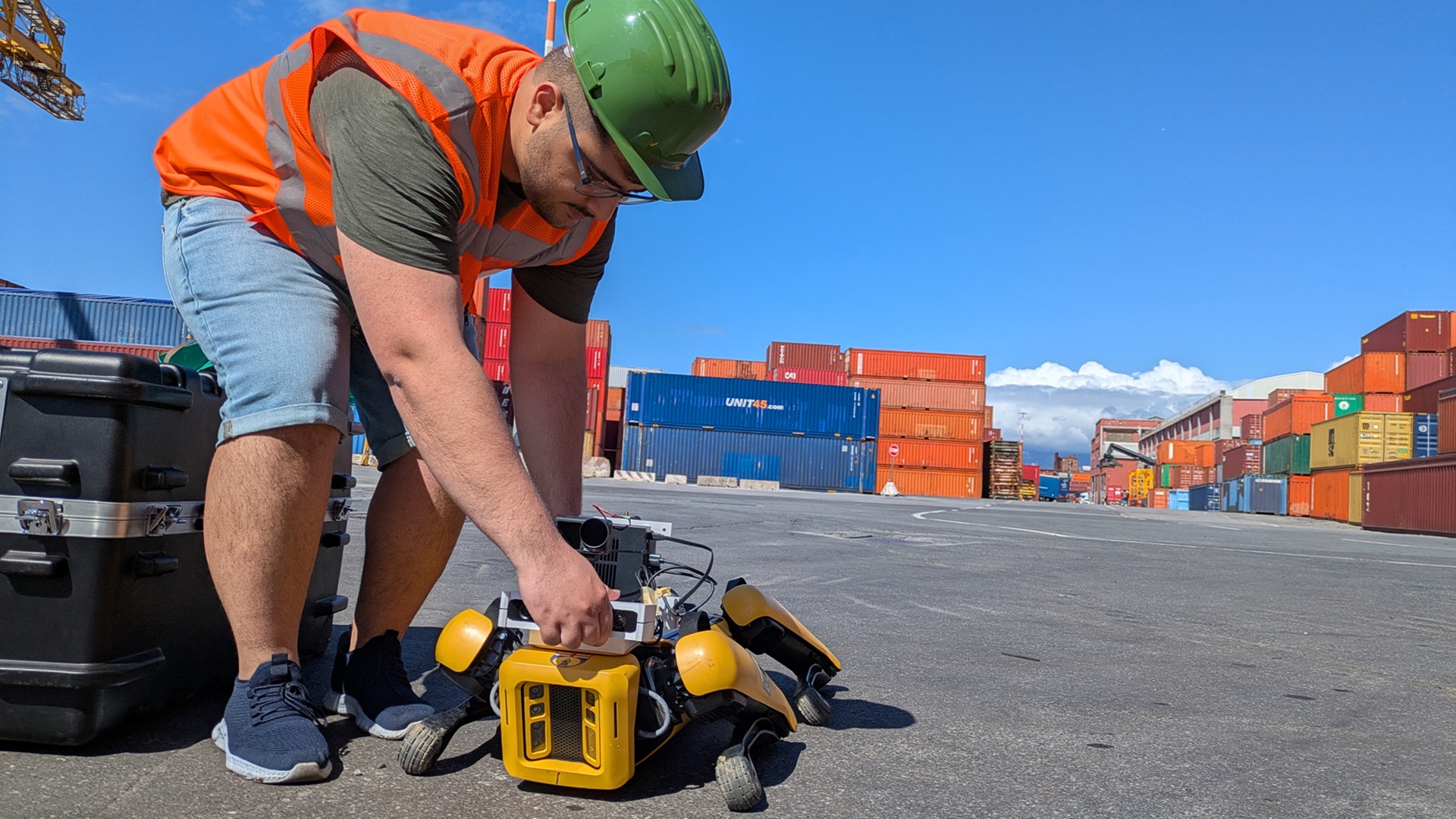
Spoke 4 of RAISE has launched its field testing phase, marking a concrete step toward transforming ports into intelligent and sustainable ecosystems.
The initiative is part of the broader RAISE program and focuses on the Port of Genoa, where experimental activities have begun in the presence of academic, industrial, and institutional partners.
During the initial operational tests, attention was focused on the use of the quadruped robot Spot, developed by Boston Dynamics. This device, operated in both autonomous and teleoperated modes, will carry out monitoring missions in critical areas such as ship holds and hazardous materials storage zones.
The robot moves nimbly in confined spaces, overcomes obstacles and stairs, and can operate near workers autonomously and with greater efficiency.
The RICE Laboratory of the University of Genoa, which participates in Spoke 4 of RAISE, has programmed Spot to inspect potentially dangerous environments, thereby reducing workers’ exposure to risk.
In autonomous mode, the robot explores its surroundings, builds 3D maps, and makes decisions about where to go. Alternatively, an operator can control it in real time using a virtual reality headset, gaining visual feedback and data essential for assessing the situation.
This ongoing experiment serves as a strong example of collaboration between academia, institutions, and private stakeholders.
The Western Ligurian Sea Port Authority, consistently committed to worker safety, has signed an agreement with the University of Genoa to support the development and testing of digital and robotic solutions in the port sector.
The company Ignazio Messina & C. has welcomed the initiative, offering its terminals for the testing phase. For the company, workplace safety remains a top priority, and it considers the adoption of innovative technologies essential to improving daily operations.
In addition to the use of autonomous robots, Spoke 4 also promotes interventions aimed at optimizing the logistics chain, reducing environmental impact, and introducing smart services in small and medium-sized ports.
Activities will continue in the coming months with further testing and technological development.
The project also involves young researchers and PhD candidates, such as Zoe Betta and Ali Yousefi, active in the RICE laboratory, who contribute to the development of innovative solutions with a tangible impact on safety and efficiency in port operations.

